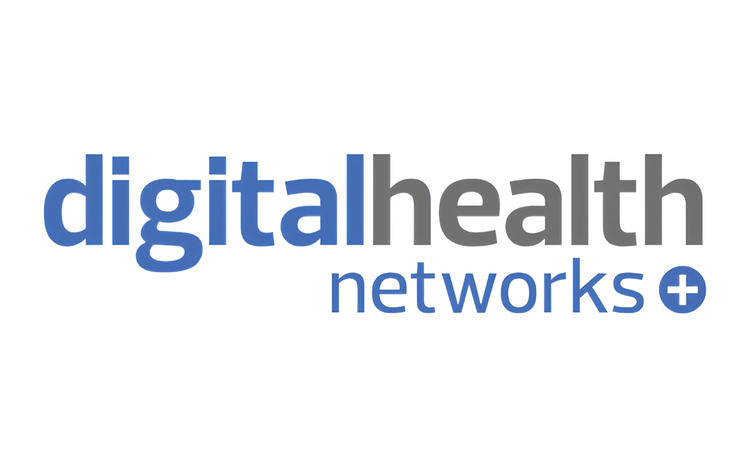Celebrating female digital health leaders on International Women’s Day
- 8 March 2021

Find role models, be brave and don’t let the word technology put you off. That’s the advice for women, from women who are working as digital health leaders.
Today (8 March), marks International Women’s Day. A day to celebrate the incredible achievements of women but also a reminder that there’s still work to do in reaching equality.
To celebrate the occasion, Digital Health News asked women who are part of our Digital Health Networks to share their experiences as a woman working in health technology, the challenges they’ve faced and the advice they have for other women looking to work in the sector.
Here’s what they had to say:
Jo Dickson, clinical informatics director at Nuffield Health and chair Digital Health CNIO Network
Jo joined Nuffield Health as their CCIO five years ago and has been involved in their vision for connected care and digital strategies. Before that she started her career as a nurse in Leeds and became one of the first CNIOs.
“I started out with part-time roles on digital projects whilst working as a nurse educator in Leeds Teaching Hospitals. I got ‘the bug’ for clinical informatics and worked hard (with colleagues in the IT team) to have a post created as a full-time lead nurse for informatics,” she said.
“About a year later, the CNIO title was being thought of, and I was one of the first to have that role title recognised. I worked in Leeds for a few years, learning lots about EPR’s [electronic patient records] and shared care records as it was just at the time when the Leeds Care Record was being developed, and I gave input to the clinical aspects of that.”
What have you enjoyed the most?
“The variety that I have had – when people think of nurses they have an idea of the bedside nurse delivering care. I feel very privileged to have worked across many areas of nursing where I am not at the bedside, but where I feel I have opportunities to make a real difference for patients, and also for colleagues.
“I also feel very proud of the fact that I have supported the development of other nurses and clinicians as they’ve moved into digital roles, and now see some fantastic nurses and AHP’s who are doing brilliant work themselves in digital roles, where this had not necessarily been something they had considered making a career from.”
What are the challenges you’ve faced?
“In the early days, the biggest challenge was in getting the role recognised within my professional group. The CNIO role was very new and people didn’t necessarily understand what the value of such roles was.
“I feel this has changed over the last few years (though there is always more to do!) and I think that I have contributed to that change in the organisations I’ve worked in, and more widely through my role as Chair of the Digital Health CNIO network.”
How do we encourage more women to work in the sector?
“I’m not sure this is a big issue in the type of role I am in; most CNIO’s are women, and so I might actually say that we need a few more men! I do think diversity of all kinds is the most key thing; diversity and inclusion of gender, ethnicity, age, sexuality, and also professional background at all levels and in all sectors.
“Across all of these areas I think the most important thing is for there to be positive role models – I hope that one day we will be in a situation where anyone can look around and easily find someone with whom they can identify and from whom they want to learn.
“It’s not always easy, but nothing worth doing ever is! Find your tribe – link up with others and know that collectively we can always do more than we can do alone.”
Dr Shera Chok, co-founder of the Shuri Network and deputy chief medical officer for NHS Digital
Dr Chok is co-founder of the Shuri Network, a network for black, Asian and minority ethnic (BAME) working in digital health roles. The Network was launched at Digital Health Summer Schools in 2019 and has grown exponentially since.
“My parents worked their way out of very humble beginnings in Malaysia to win scholarships from the British government to train as teachers. Their strength and support have been the most important factors,” Dr Chok said.
“As a clinician, I have had the privilege of working in Tower Hamlets which is a highly vibrant community, as well as with NGOs in Sudan, Laos, Greece and Indonesia with people affected by war, extreme poverty and natural disasters.
“As an older, more senior clinical leader I can use my influence and platform to help others to progress and succeed in their careers.”
What are the challenges you’ve faced?
“Discrimination from colleagues – this can derail your mental wellbeing but I found my support network, or my ‘personal board of directors’, and hearing the experiences of BAME colleagues and leaders in the NHS immensely valuable. It is shocking how common it is.”
How do we encourage more women to work in the sector?
“If every senior digital manager or clinician took the time to help one or two women to take their first steps in, or progress in, their digital careers we would see change happen much more quickly.
“Be brave, find like-minded people who believe in your ability, join networks and seek out opportunities such as the Topol Fellowships, Florence Nightingale Fellowships, internships, the London Digital Pioneers programme and our [Shuri Network’s] fantastic shadowing programme.”
Mandy Griffin, managing director of digital health The Health Informatics Service, vice chair Digital Health CIO Network
Mandy started her career in retail, joining the NHS in 2009 after 27 years working for Marks and Spencer. She has since built up a track record of delivering complex digital programmes.
“I had done some work with the NHS on service excellence, during which time I was seduced by a job advert to join the Health Informatics Service as a chief operating officer,” she said.
“The transition was a bit scary having no previous technical background or public sector experience, but it turned out to be one of the best career decisions I have ever made. I become interim director in informatics by request of my CEO in 2015 and then, after earning my stripes, the post was made substantive in 2017 and renamed managing director of digital health.
“The reason why I believed this happened was that I was well known for my ability to deliver complex and also challenging programmes and over the interim two years had built a track record of this.”
What have you enjoyed most?
“The diversity of my career has kept me motivated but, most of all the success I have been able to celebrate with the wonderful teams I have around me that have helped and supported my journey.
“I have a few highlights: being part of and leading one of the biggest EPR deployments in the NHS; working in partnership with a partner organisation to ensure every single lab across the NHS was connected and then were able to process over 750,000 tests a day to support the Covid 19 agenda; running a successful informatics support service and doubling turnover over the last five years; and becoming the Digital Health Networks CIO of the year in 2019.”
How do we encourage more women to work in the sector?
“People like me need to get out there and promote what they do. I also do talks at local sixth form colleges and universities. We need to also be clear we are not looking for technology specialists but great leaders.
“Some understanding is always an advantage, I did an MSc in informatics in 2012 and that was really helpful in developing my knowledge on how technology can enable great healthcare.
“I said earlier that moving into health technology was the best decision of my career, don’t let the word technology put you off. If you have an interest in technology then you too could have a great career, but don’t forget as you become more senior those softer skills and leadership qualities are really important.”
Dr Natasha Phillips RN, chief nursing information officer, NHSX
Dr Phillips started her career as a nurse 27 years ago and recalls digital being “very far away” at the time. What has remained common throughout her career is a desire to continuously improve what nurses do and how they do it.
“I am privileged to be in this role where I have the potential to make a real difference to patients and clinical colleagues alike. It is an exciting time in healthcare – digital technology and data science has real potential to transform the way we nurse, I feel like we are on the cusp of leaps forward that we have discussed for many years,” Dr Phillips said.
“While I didn’t have this as a goal when I started my career, I can see that the choices I’ve made and the work I have done have meant I am well placed to do this. I feel very lucky.”
What have you enjoyed most?
“I am privileged to have had a thoroughly enjoyable and fulfilling career so it’s hard to pick out what I most enjoyed. I love bedside nursing and I still practice as an ICU nurse. I am a nurse first and digital second.
“A highlight was the Epic implementation at UCLH (University College London Hospitals), it was truly transformative and I was incredibly proud of the nursing engagement and leadership that meant we delivered positive change for staff and patients alike. Being recognised through the outstanding leadership award at UCLH and in the Digital Health CNIO of the year award were a real source of pride as I was nominated by peers and it felt to me that this meant I had made a positive difference for them.”
What are the challenges you’ve faced?
“As an optimist I often struggle with calling back to mind the challenges, although of course there were many. I have carved a unique career path that meant taking risks and making the case for much of the work I have done and the roles I have taken up. I think I have been successful in this because of my passion for what I do, my curiosity and the networks I have built.
“The biggest challenge has been juggling work, studying and family life and I am very grateful for the support of my family. I have two daughters and as a working mum at times I have suffered with mummy guilt, but I like to think I have shown them that anything is possible if you have the right intentions, you like what you do and you have the support of those you care about.
“The move to home working in the pandemic has been interesting and has busted lots of myths. I have felt the benefit of being more available to my children but have been no less productive and they have said how much they like this. I hope that this will be positive for women juggling careers and family lives.
How do we encourage more women to work in the sector?
“I think we need clearer career paths for nurses wanting to work in tech, I think we need to do more like this to profile diversity so people can see this might be for them, and we need to offer support in numerous ways including mentorship and other learning opportunities.
“We are doing this through programmes like the Florence Nightingale Digital leadership scholarship, the NHS Digital Academy, Topol and others but we need to do more focusing on early careers.”
And when it comes to taking the plunge into a digital nursing career, Dr Phillips says “do it, it’s fantastic and you have lots to offer”.
“We need diversity in all its forms in this field to ensure we deliver solutions that meet the needs of the people we serve. Do what you care about, for me technology in and of itself has never been the point, it’s about enabling people to do their best work and for patients to live their best lives. I pay equal attention to people and process and I think this has been at the heart of the transformation successes I have had.
“Finally, proactively reach out to network with others to both create opportunity and support your own resilience. Approach every conversation as if it has the potential for positive change and stay curious. Be open to different routes in your career as long as they fit with your core interests and values. Do what brings you joy and you will be successful.”
Sonia Patel, chief information officer, NHSX
For Patel the digital world “came naturally”. She studied a Masters in Bioinformatics before working as a developer on the human genome project in Cambridge. Now she’s chief information officer at NHSX.
“I started my NHS career with contracting jobs across acute and mental health trusts, then took my first permanent NHS role as a senior information analyst and have never looked back,” Patel said.
“I became a CIO at a primary care trust when I was just thirty, before I had children. Seeking more flexibility I took up contracting roles and then later became an acute CIO before making the step up last year to national CIO at NHSX.”
What have you enjoyed most?
“I thrive on making a difference and growing with the experience. Innately as a technologist the trade is always evolving with emergence of new technologies, new methods, application to new / changing business context and environment.
“In healthcare we are increasingly seeing the positive impact data and digital services are making to clinical and care services. Over the last five-six years it’s been personally really rewarding to lead teams that have put appointment management in the hands of patients, improve the working experience of clinical staff with better tech, empower boards and leaders with on-demand intelligence, remove libraries of medical records to provide the clinical information at the touch of a button.
What are the challenges you’ve faced?
“Like others in the health and care sector Covid has been one of the biggest challenges and during the first wave I was the joint CIO at London North West Healthcare NHS Trust and The Hillingdon Hospitals Foundation Trust. I recall distressed colleagues not being able to connect patients with their loved ones and this led to crowdsourcing an initiative for a virtual visits app to help relatives keep in touch with patients.
“It began one evening with a call through Twitter for the community to come and help us develop an app, and within 48 hours we had a test app which is now being widely used, it really goes to show what we can achieve when we collaborate. The success of this also went on to win the IT industry award 2020.
How do we encourage more women to work in the sector?
“I’ve found that tech is still predominantly a man’s world, even though we have many female Silicon Valley CEOs and CIOs, there’s still a way to go in health and care. We need more women in tech; we need the diversity of perspective to ensure the best outcomes for the workforce and citizens.
“In order to support this we will also need better models to support work-life balance.
“Try to play to your strengths – we don’t have to personally deliver every action – instead a lot of it is about building the right team around you so that you use your strengths and they use theirs. That can be formally, if you’re in a leadership role, or informally, just by working closely with the people around you.
“Digital leadership is also about having a good understanding of the problems and the opportunities to deliver improvements. I love walking in people’s shoes, so I spend a lot of time in both the corporate and clinical spaces – to try to understand what our teams need across the NHS and how they work.
We are the hosts of Digital Health Rewired 2021, the must-attend virtual festival celebrating the best of digital health and care, taking place across 15-19 March 2021. Get a flavour of Rewired 2021 from the video below. You can book your place here




